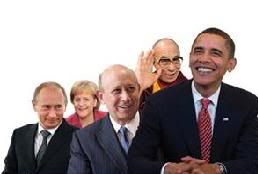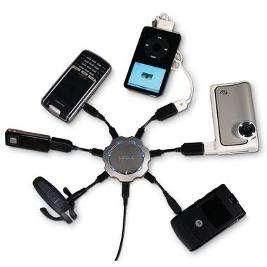 Earth Hour started in 2007 in Sydney, Australia when 2.2 million homes and businesses turned their lights off for one hour to make their stand against climate change. Only a year later and Earth Hour had become a global sustainability movement with more than 50 million people across 35 countries participating. Global landmarks such as the, Sydney Harbour Bridge, The CN Tower in Toronto, The Golden Gate Bridge in San Francisco, and Rome’s Colosseum, all stood in darkness, as symbols of hope for a cause that grows more urgent by the hour.
Earth Hour started in 2007 in Sydney, Australia when 2.2 million homes and businesses turned their lights off for one hour to make their stand against climate change. Only a year later and Earth Hour had become a global sustainability movement with more than 50 million people across 35 countries participating. Global landmarks such as the, Sydney Harbour Bridge, The CN Tower in Toronto, The Golden Gate Bridge in San Francisco, and Rome’s Colosseum, all stood in darkness, as symbols of hope for a cause that grows more urgent by the hour.In March 2009, India along with hundreds of millions of people took part in the third Earth Hour. Over 4000 cities in 88 countries officially switched off to pledge their support for the planet, making Earth Hour 2009 the world’s largest global climate change initiative.
Earth Hour 2010 takes place on Saturday 27 March at 8.30pm- 9:30pm and is a global call to action to every individual, every business and every community throughout the world. It is a call to stand up, to take responsibility, to get involved and lead the way towards a sustainable future. Iconic buildings and landmarks from India to Australia to America will stand in darkness. People across the world from all walks of life will turn off their lights and join together in celebration and contemplation of the one thing we all have in common – our planet.So sign up now and let’s make 2010 the biggest Earth Hour yet!.
It’s Showtime! Show the world what can be done.
Why get involved?
Put simply, because our future depends on it!
Earth Hour has done a lot to raise awareness on climate change issues. But there’s more to it than switching off lights for one hour once a year. It’s all about giving people a voice on the future of our planet and working together to create a sustainable low carbon future for our planet.
The future can be bright
New economic modelling indicates the world has just five years to initiate a low carbon industrial revolution before runaway climate change becomes almost inevitable. But it can be done, and the long term benefits will be enormous.
So now's the time to take a stand and give world leaders the mandate they need to make the right climate deal.
Earth Hour 2010
Earth Hour 2010 continues to be a global call to action to every individual, every business and every community. A call to stand up, to show leadership and be responsible for our future.
In what we hope will be the world’s largest mass participation event, Earth Hour 2010 will be the culmination of over one billion people around the globe, in more than 6000 cities, towns turning off lights for one hour on one night. Iconic buildings and landmarks across Asia-Pacific, the Middle East and The Americas will go dark.
In India, we hope to make Earth Hour 2010 even bigger and better than last year. Besides Delhi & Mumbai , this year we are taking Earth Hour to Pune, Ahmedabad, Hyderabad, Bangaluru, Chennai and Kolkata, apart from several other cities where people will be encouraged to participate and turn-off the lights in their homes, offices and buildings from 8:30pm - 9:30pm on Saturday, 27 March 2010. Our participation will go a long way in showing to the world that India is united on its stand against global warming and is demanding immediate action.
We want to let the world leaders know that the world is still watching, post the UN Climate Summit in Copenhagen in 2009 and that we, the citizens of the planet, demand commitment to actions that will reduce greenhouse gas emissions for the benefit of the planet.
Climate change and Earth Hour: What is the connection?
What is climate change?
Climate Change is a phenomenon which takes place when green house gases (the most common amongst which is CO2) that are released into the atmosphere, form a layer preventing the heat from the earth’s surface to be reflected back to the sun. This phenomenon popularly known as the ‘greenhouse effect’ causes the earth’s temperature to rise, giving way to many potentially catastrophic changes in weather patterns, oceanic currents, rainfall patterns etc.
Who is responsible for releasing these green house gases?
There are essentially five greenhouse gases that are most commonly observed in the atmosphere. These include carbon dioxide, methane, nitrous oxide, water vapor and cfc’s. The sectors responsible for the emissions of these gases can be informally divided into the: the power sector, industrial sector, transport sector and household sector.
How does the power sector contribute to the release of co2 in the atmosphere?
From amongst all these sectors the power sector contributes 50% of India’s carbon emissions. In India, coal fired power plants dominate the power generation capacity. This makes the power sector extremely pollution intensive since coal as a source of energy has a very high global warming potential. In India 53% of the installed capacity and 70-80% of generation of power is from coal fired power plants The share of renewable sources of energy in the power sector such as wind, solar, geothermal etc comprises only a mere 7.7%. These sources of energy are not only renewable but also clean.
How can the power sector reduce its co2 emissions?
Thus the need of the hour is to look at ways which can help in the mitigation of, and adaptation to climate change. From amongst the mitigation options available to a country
- Shift to low carbon sources of energy: One option for mitigation is to shift dependence away from fossil fuel ( coal, oil and natural gas) based power generation towards generating power through renewable and cleaner sources of energy such as wind, solar, geothermal etc. However this shift is expensive because the technology is not readily available or extremely costly to purchase and therefore cannot be implemented in the short term without adequate financial and technical assistance from the developed world.
- Become more efficient in your use of energy: That is, to use less energy to provide the same level of energy services, for example, by using energy efficient appliances or investing in insulation to prevent heat loss in buildings thus reducing the energy used for heating.
- Adopt an energy saving attitude: Use energy only when it is absolutely essential and not be wasteful in its use. This is the messaging of the Earth Hour, an initiative that hopes to instill behavioral change in the energy consuming attitude of people by asking them to use their power efficiently and switch off the non essential lights and other energy consumer devices when not in use.








0 Response to "I'M SWITCHING OFF! ARE YOU ? EARTH HOUR 2010"